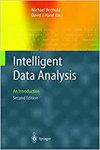Aggregating knowledge and collaborative information for sequential recommendation
IF 0.8
4区 计算机科学
Q4 COMPUTER SCIENCE, ARTIFICIAL INTELLIGENCE
引用次数: 0
Abstract
Sequential recommendation aims to predict users’ future activities based on their historical interaction sequences. Various neural network architectures, such as Recurrent Neural Networks (RNN), Graph Neural Networks (GNN), and self-attention mechanisms, have been employed in the tasks, exploring multiple aspects of user preferences, including general interests, short-term interests, long-term interests, and item co-occurrence patterns. Despite achieving good performance, there are still limitations in capturing complex user preferences. Specifically, the current structures of RNN, GNN, etc., only capture item-level transition relations while neglecting attribute-level transition relations. Additionally, the explicit item relations are studied using item co-occurrence modules, but they cannot capture the implicit item-item relations. To address these issues, we propose a knowledge-augmented Gated Recurrent Unit (GRU) to improve the short-term user interest module and adopt a collaborative item aggregation method to enhance the item co-occurrence module. Additionally, our long-term interest module utilizes a bitwise gating mechanism to select historical item features significant to users’ current preferences. We extensively evaluate our model on three real-world datasets alongside competitive methods, demonstrating its effectiveness in top K sequential recommendation.汇聚知识和协作信息,实现按序推荐
序列推荐旨在根据用户的历史交互序列预测其未来活动。在这些任务中采用了多种神经网络架构,如循环神经网络(RNN)、图神经网络(GNN)和自我注意机制,探索了用户偏好的多个方面,包括一般兴趣、短期兴趣、长期兴趣和项目共现模式。尽管取得了良好的性能,但在捕捉复杂的用户偏好方面仍存在局限性。具体来说,目前的 RNN、GNN 等结构只能捕捉到项目级的转换关系,而忽略了属性级的转换关系。此外,显式条目关系是通过条目共现模块来研究的,但它们无法捕捉隐式条目-条目关系。为了解决这些问题,我们提出了一种知识增强型门控循环单元(GRU)来改进短期用户兴趣模块,并采用协作项目聚合方法来增强项目共现模块。此外,我们的长期兴趣模块利用比特门控机制来选择对用户当前偏好具有重要意义的历史项目特征。我们在三个真实数据集上广泛评估了我们的模型和其他竞争方法,证明了它在前 K 排序推荐中的有效性。
本文章由计算机程序翻译,如有差异,请以英文原文为准。
求助全文
约1分钟内获得全文
求助全文
来源期刊

Intelligent Data Analysis
工程技术-计算机:人工智能
CiteScore
2.20
自引率
5.90%
发文量
85
审稿时长
3.3 months
期刊介绍:
Intelligent Data Analysis provides a forum for the examination of issues related to the research and applications of Artificial Intelligence techniques in data analysis across a variety of disciplines. These techniques include (but are not limited to): all areas of data visualization, data pre-processing (fusion, editing, transformation, filtering, sampling), data engineering, database mining techniques, tools and applications, use of domain knowledge in data analysis, big data applications, evolutionary algorithms, machine learning, neural nets, fuzzy logic, statistical pattern recognition, knowledge filtering, and post-processing. In particular, papers are preferred that discuss development of new AI related data analysis architectures, methodologies, and techniques and their applications to various domains.
 求助内容:
求助内容: 应助结果提醒方式:
应助结果提醒方式:


